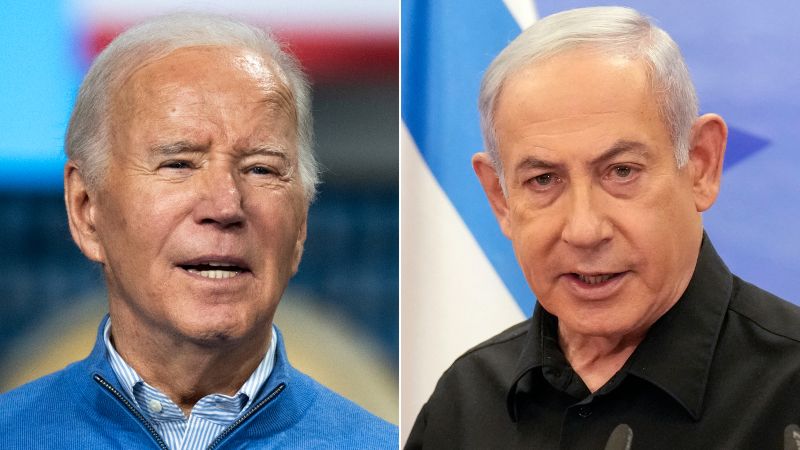Israeli Prime Minister Benjamin Netanyahu’s decision to cancel a planned delegation to Washington requested by President Joe Biden due to the US abstaining from a United Nations Security Council resolution calling for a ceasefire in Gaza highlights a deepening rift between the two leaders. This move was viewed by American officials as an overreaction driven by Netanyahu’s domestic political concerns and resulted in a stark illustration of the strained dynamic between Israel and the US. While alternative options for handling Hamas in Rafah will still be shared, Netanyahu’s cancellation raised concerns about Washington’s influence over its ally.
The cancellation of the in-person talks in Washington comes at a critical time for the conflict in Gaza and for assessing Washington’s control over Israeli decision-making. Despite providing crucial military and diplomatic support, President Biden’s patience with Netanyahu has been wearing thin. The calls for an end to the fighting have crossed political boundaries in the US, with even former President Donald Trump urging Israel to strive for peace. If Netanyahu continues to reject Washington’s alternatives, Biden may be forced to reconsider American support for Israel.
American officials were perplexed by Netanyahu’s decision to cancel the delegation after the US maintained its stance on a ceasefire, coupling it with the release of hostages. White House officials have expressed increasing concern over Israel’s signals of launching a major ground offensive in Rafah, fearing a humanitarian catastrophe. While there was no imminent ground invasion, the pressure is mounting as Ramadan ends. Washington insists on a blueprint that ensures the safety of Palestinian civilians but doubts the feasibility of such a plan given the lack of safe places in Gaza for displaced civilians.
Vice President Kamala Harris indicated that consequences for Israel are not off the table should it proceed with its Rafah plans, escalating pressure on President Biden to consider conditioning military assistance based on humanitarian efforts. Inside discussions revealed plans to push Israel towards a more targeted military operation focused on high-value Hamas targets in Rafah, combined with border security measures to prevent weapon smuggling. Invading Rafah could endanger humanitarian aid flow and strain Israel’s relations with Egypt, prompting warnings about potential international backlash for Israel.
Biden’s proposal for talks aimed to find a constructive approach to shaping Israel’s war plans, despite Netanyahu’s insistence on a full ground invasion as the only solution to eradicate Hamas in Gaza. While the Israeli Prime Minister suggested going ahead with a Rafah operation without US support, the US signaled the possibility of intervention to halt the offensive. Negotiations over a ceasefire and hostage release were ongoing, with Israel indicating a potential delay in the Rafah operation, providing the US with a window to intervene. American officials are working to prevent the collapse of hostage talks if Israel proceeds with its offensive.
The cancellation of the Washington delegation underscores the strained relationship between the US and Israel, with American officials concerned about Netanyahu’s stance on a ground invasion in Rafah despite US warnings of a humanitarian disaster. While Biden aims to find a peaceful solution to the conflict, pressure is mounting on both leaders to reach a compromise that safeguards civilian lives. The delicate balance between supporting Israel’s security needs while advocating for humanitarian efforts underscores the complex task facing the Biden administration as they navigate the escalating tensions in Gaza.


